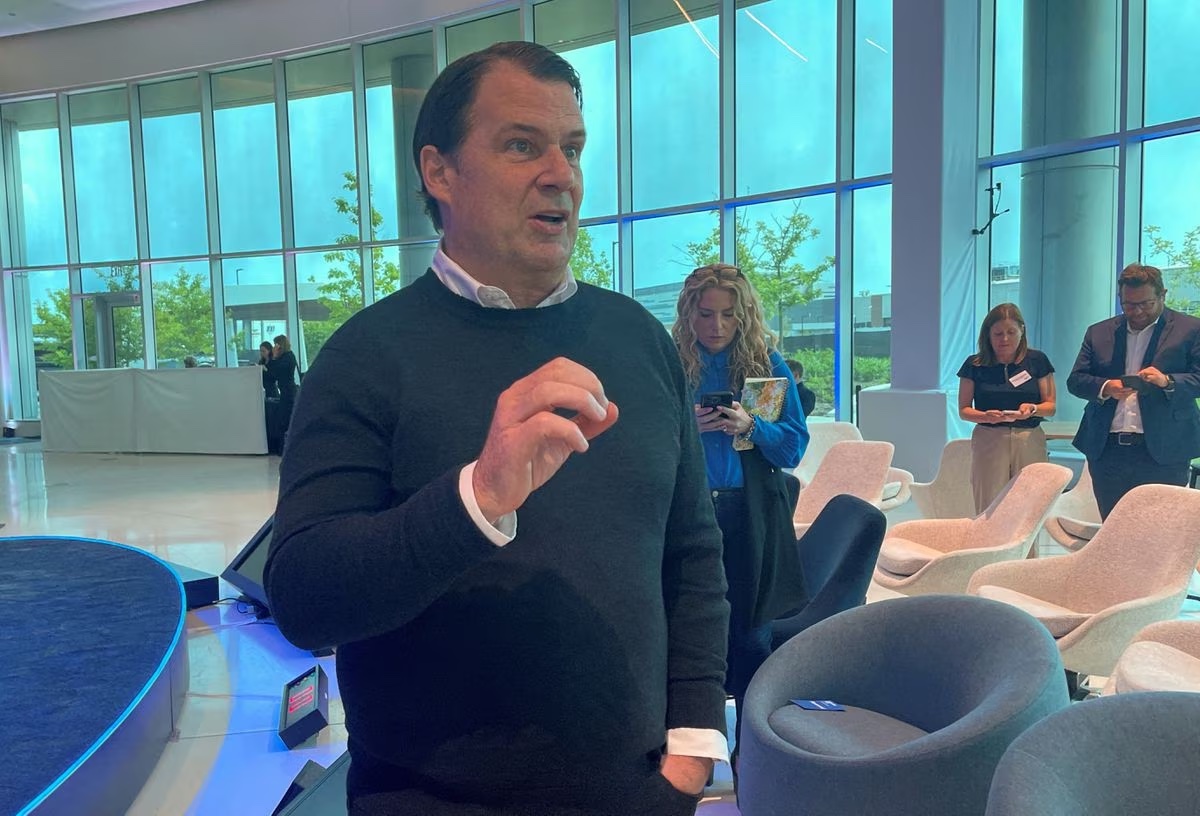WASHINGTON, July (Reuters) – Ford Motor (F.N) CEO Jim Farley and Executive Chairman Bill Ford held meetings this week with U.S. lawmakers in Washington amid Republican criticism of the automaker’s licensing deal with Chinese battery manufacturer CATL (300750.SZ) to build a Michigan battery plant.
Last week, the chairs of two U.S. House of Representatives committees said they were investigating Ford’s partnership with CATL.
U.S. Senator Gary Peters, a Democrat from Michigan, told Reuters he met with Farley and hopes concerns about the plant can be resolved. “We talked through some of the challenges and potential path,” Peters said on Thursday, declining to elaborate.
Ford announced in February it is spending $3.5 billion to build a battery plant in Michigan using technology from CATL, the world’s largest battery maker.
The automaker declined to comment on the meetings which covered a wide variety of issues, sources said. Representative James Comer was among the Kentucky delegation members who met on Tuesday with Bill Ford, a spokesman for the lawmaker said.
Jason Smith and Mike Gallagher, Republican chairs of the House Ways and Means Committee and the Select Committee on China, in a letter last week demanded Ford Motor answer questions.
“We are concerned that the deal could simply facilitate the partial onshoring of PRC-controlled battery technology, raw materials, and employees while collecting tax credits and flowing funds back to CATL through the licensing agreement,” the House letter said.
Ford said last week the automaker “will own and run this plant in the United States, instead of building a battery plant elsewhere or exclusively importing LFP (lithium iron phosphate) batteries from China like our competitors do.
In 2022, Congress passed the $430 billion Inflation Reduction Act which will bar future electric-vehicle tax credits if any battery components are manufactured or assembled by a “foreign entity of concern.” Ford is awaiting guidance from the U.S. Treasury to ensure the partnership does not run afoul of the requirement.
One industry executive who asked not to be identified said automakers are watching closely to see if Ford’s Michigan plant batteries will qualify for tax incentives, adding other automakers “will quickly follow suit with similar deals” if it gets the green light.









